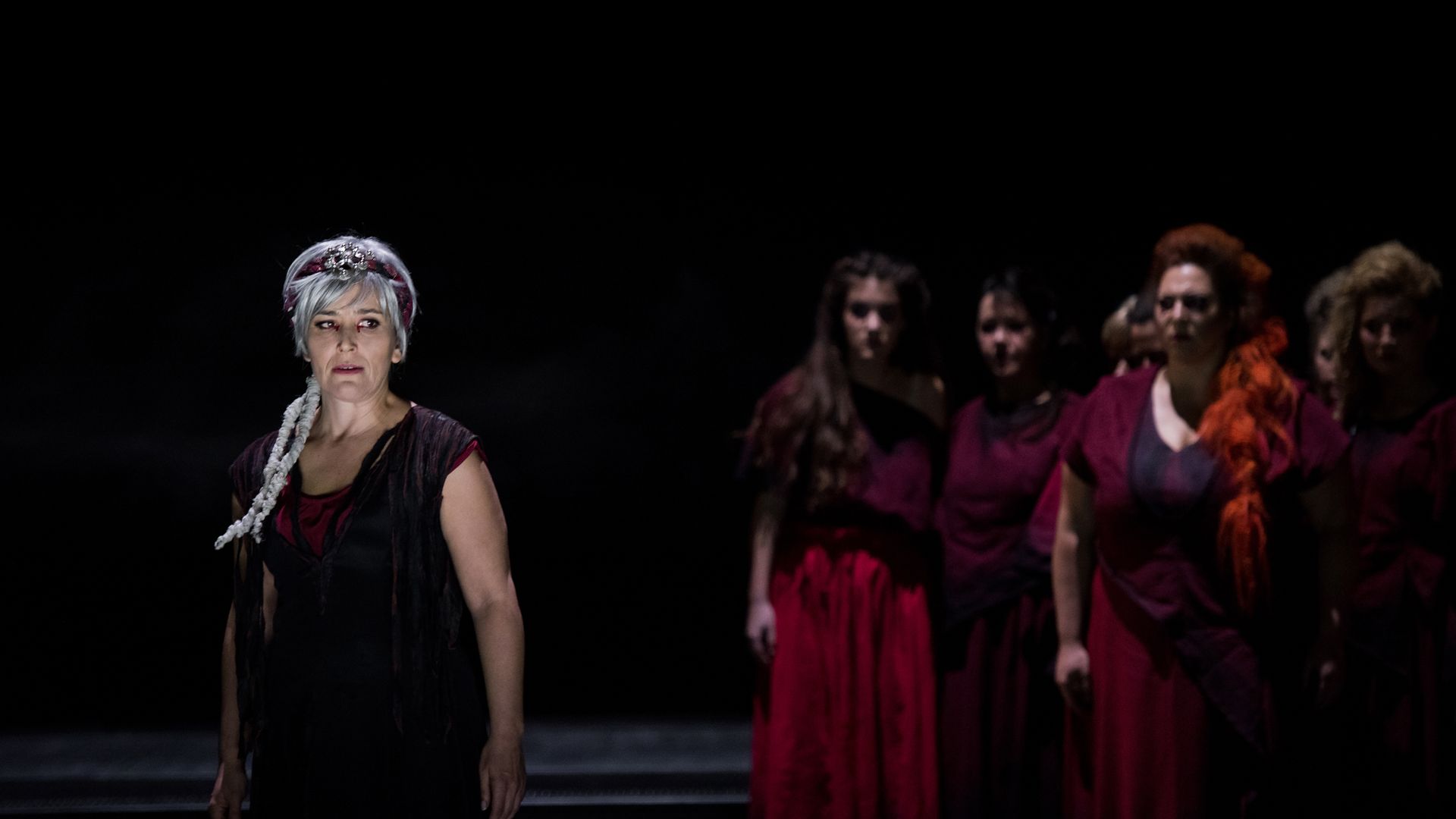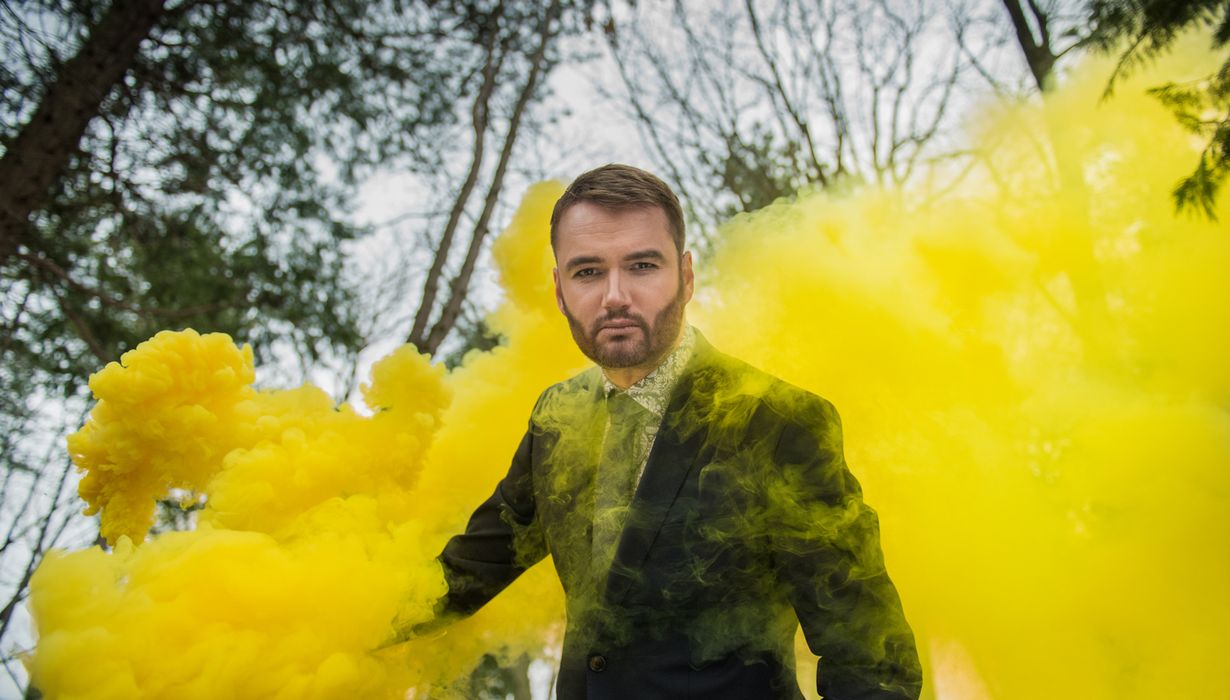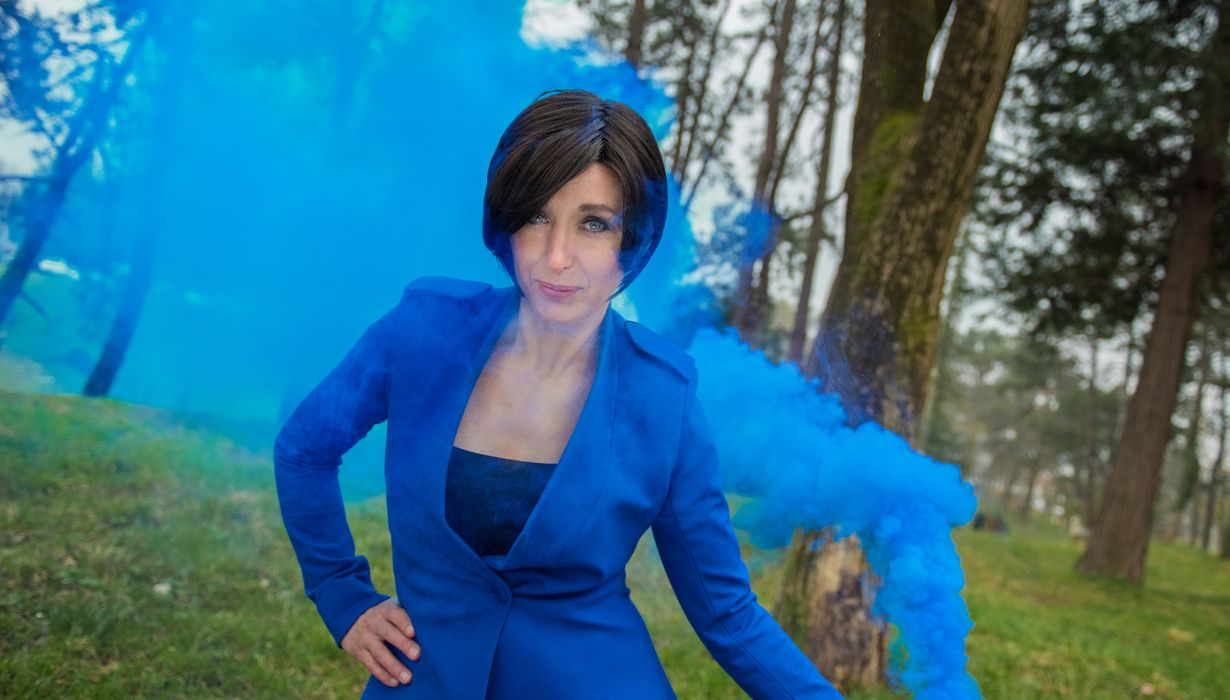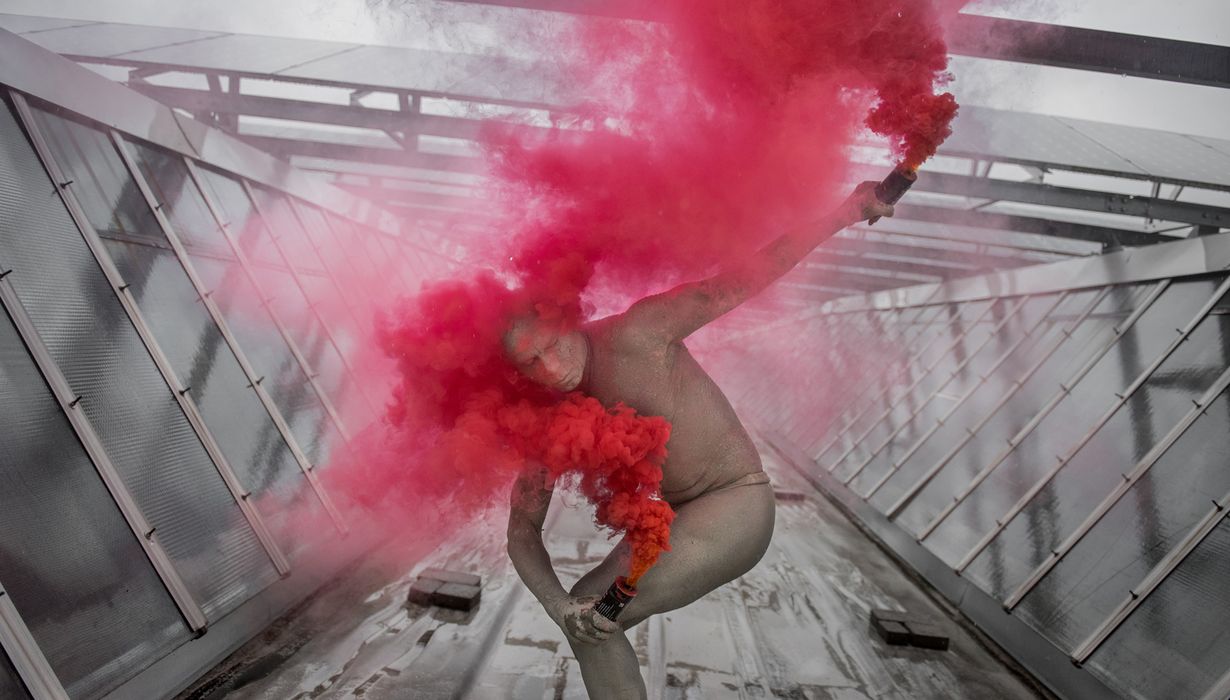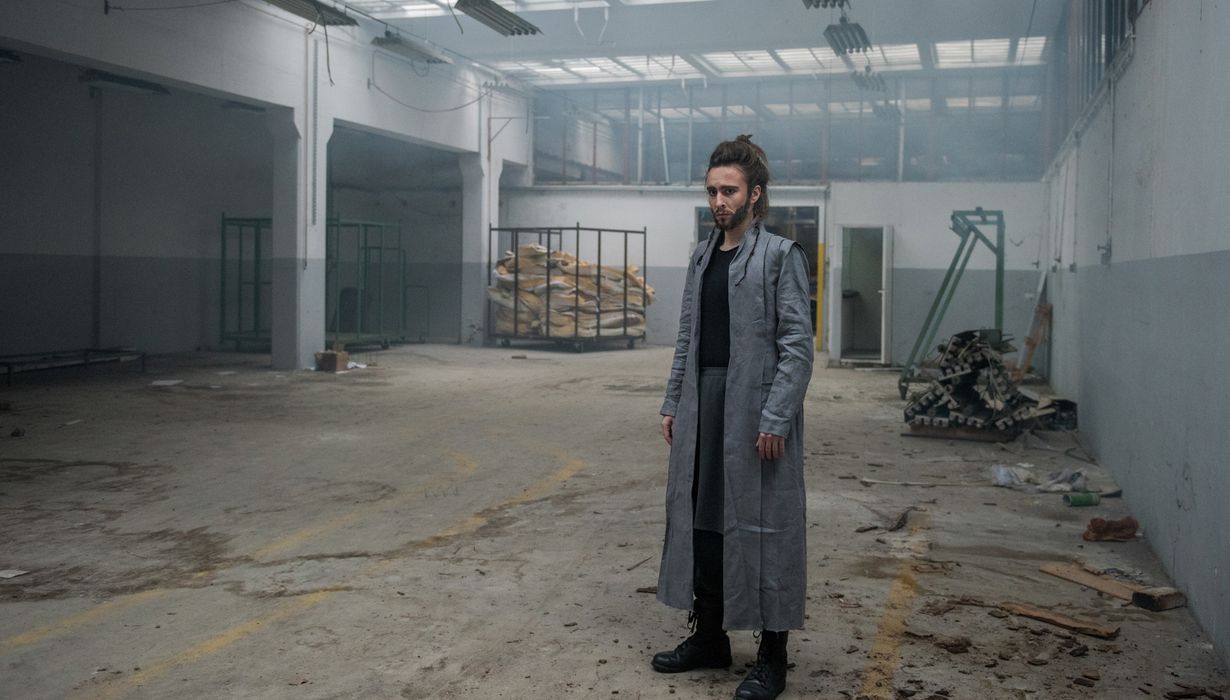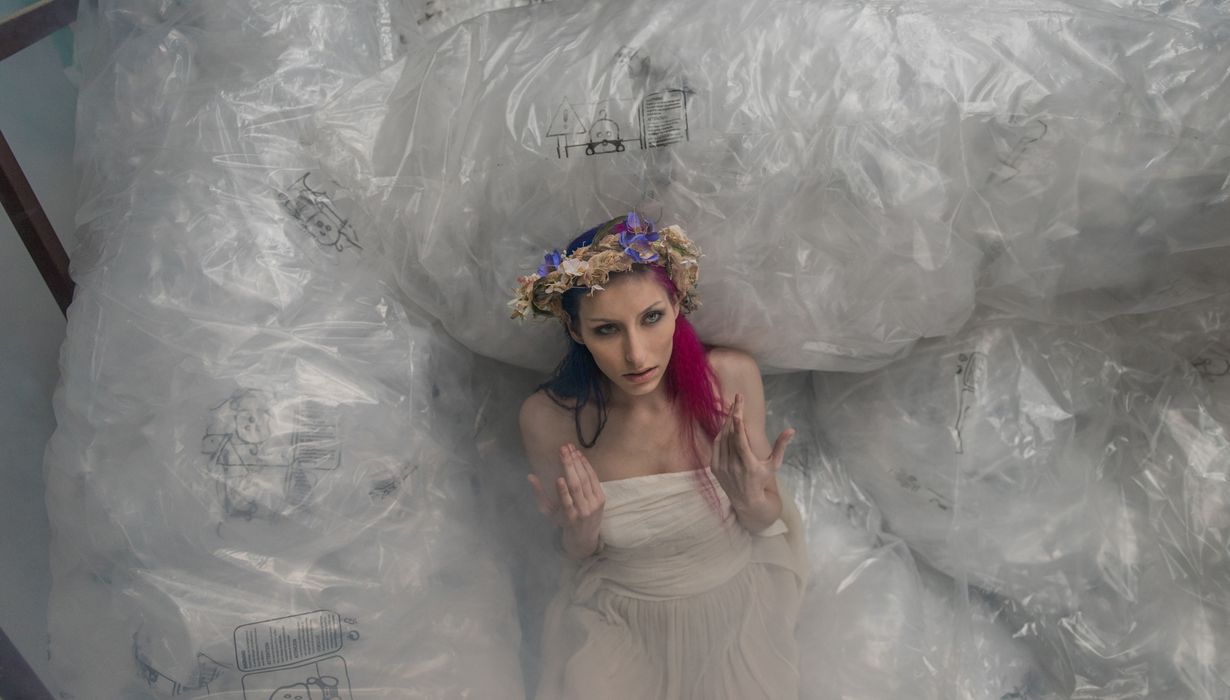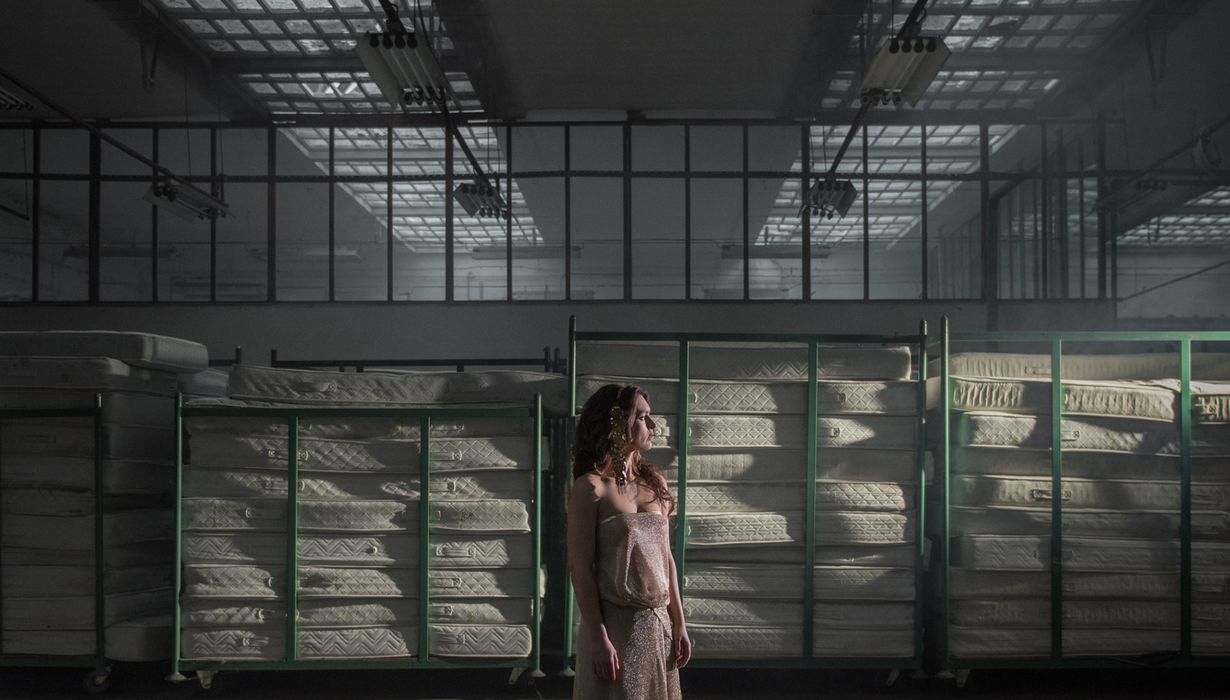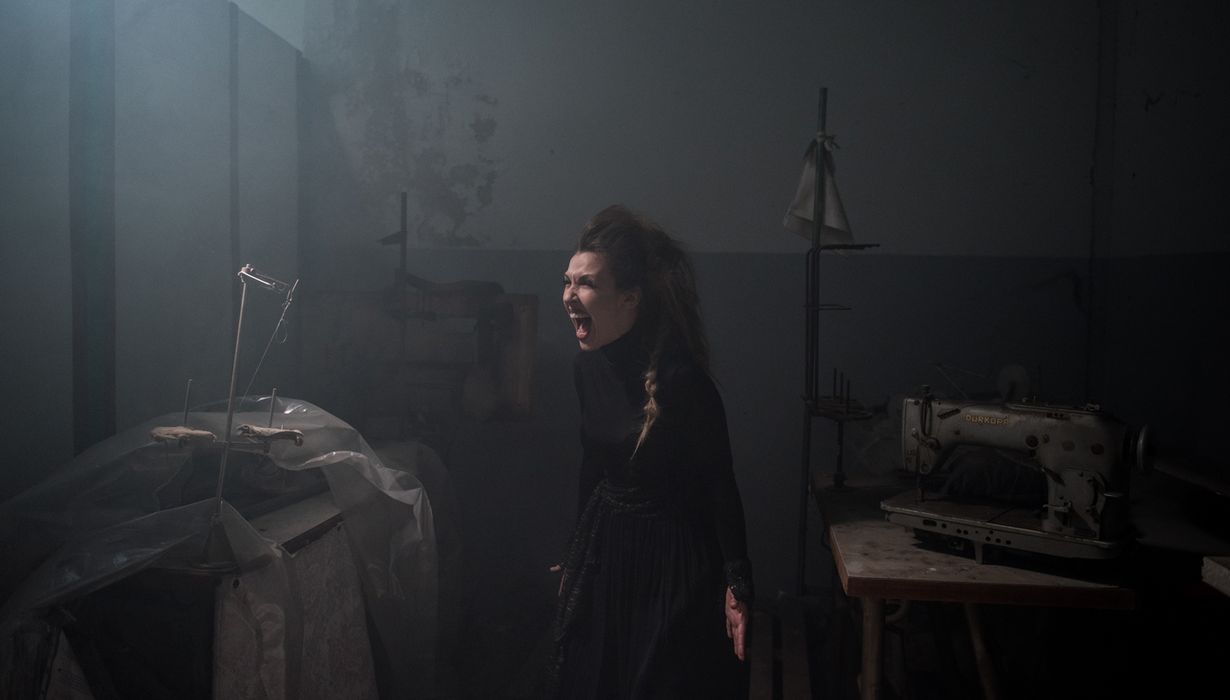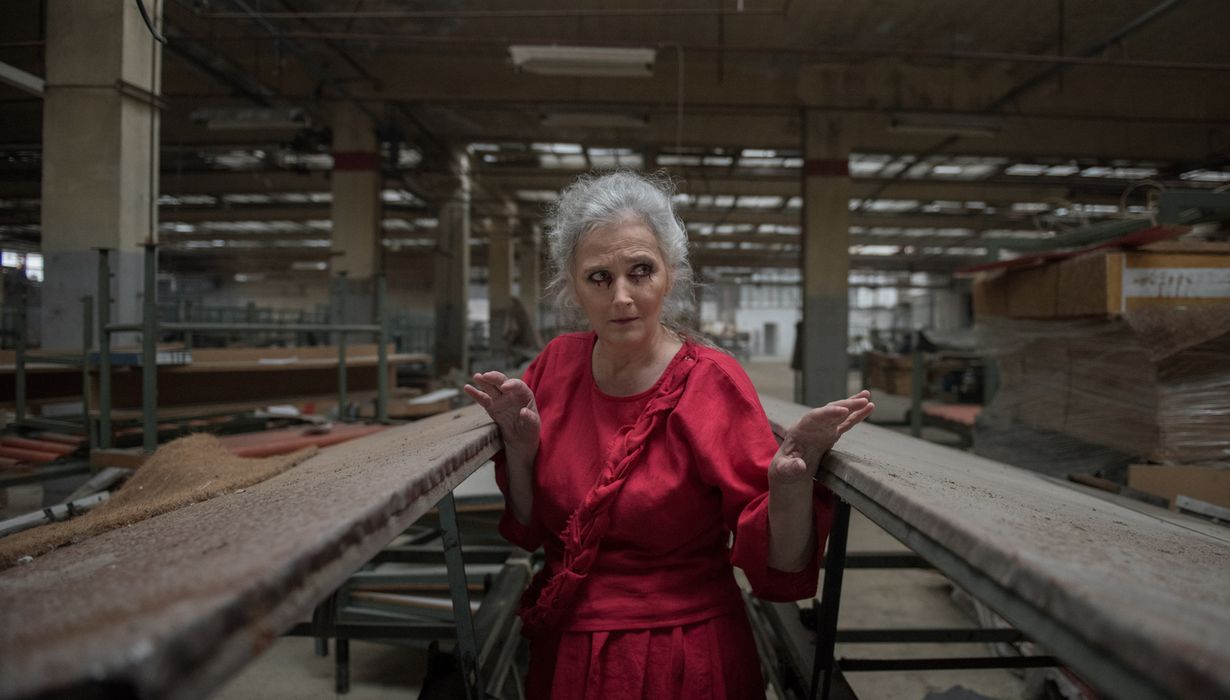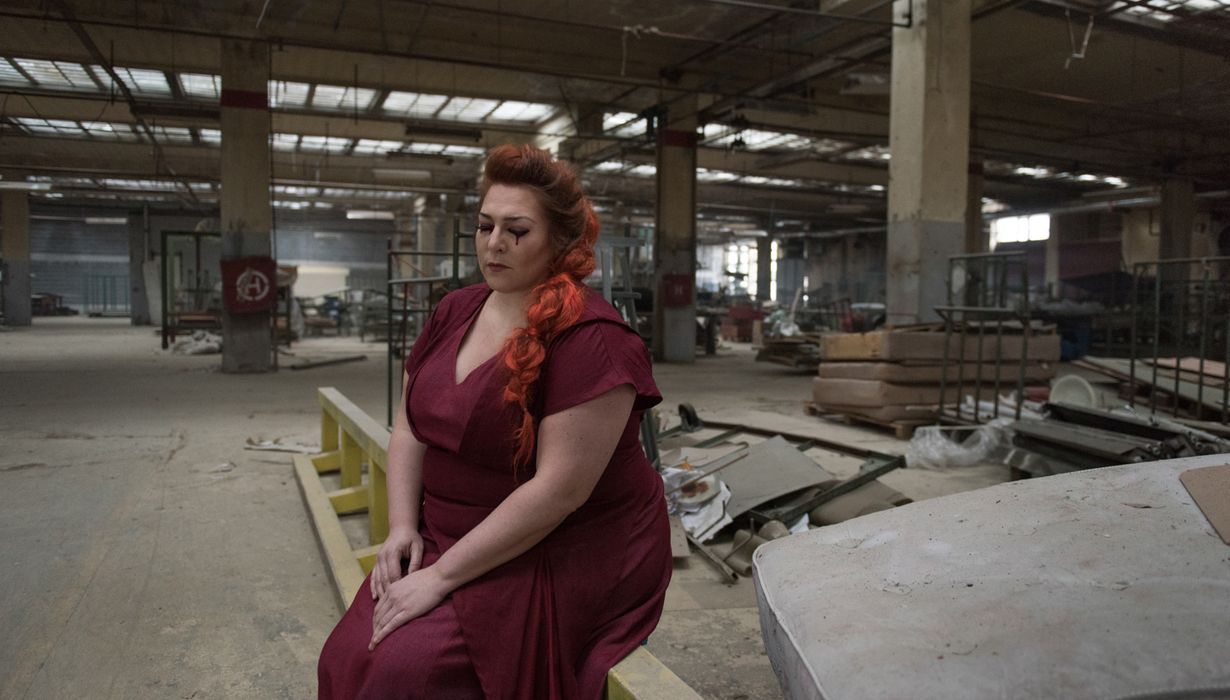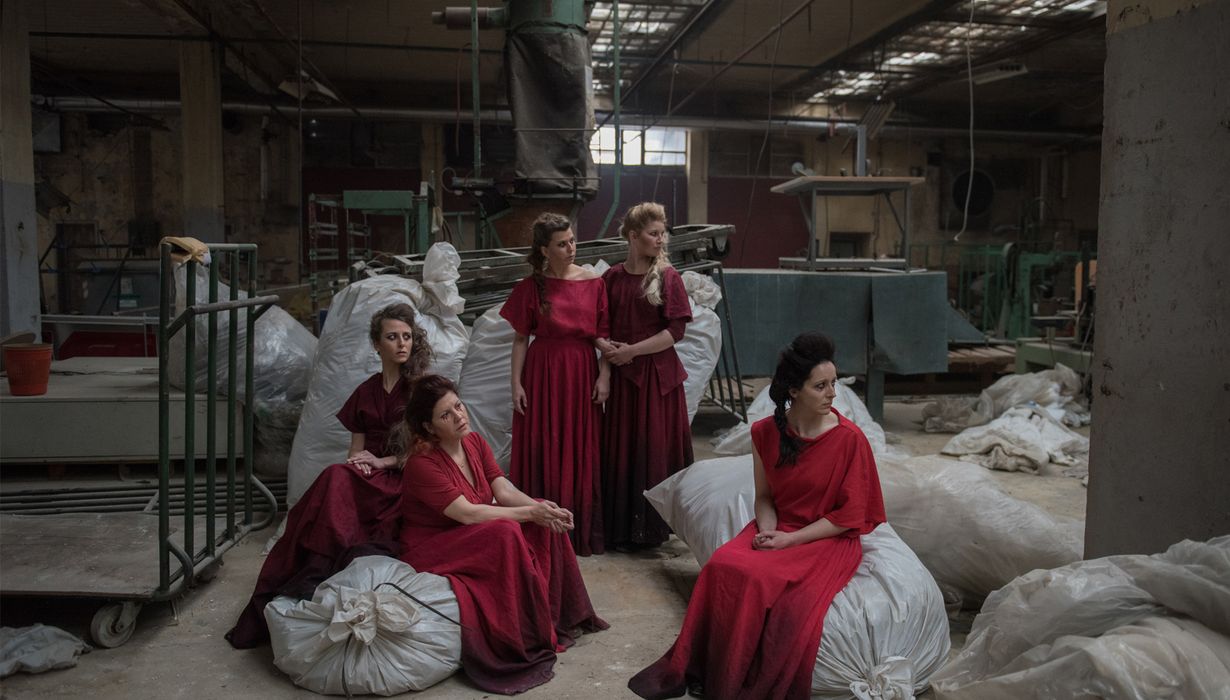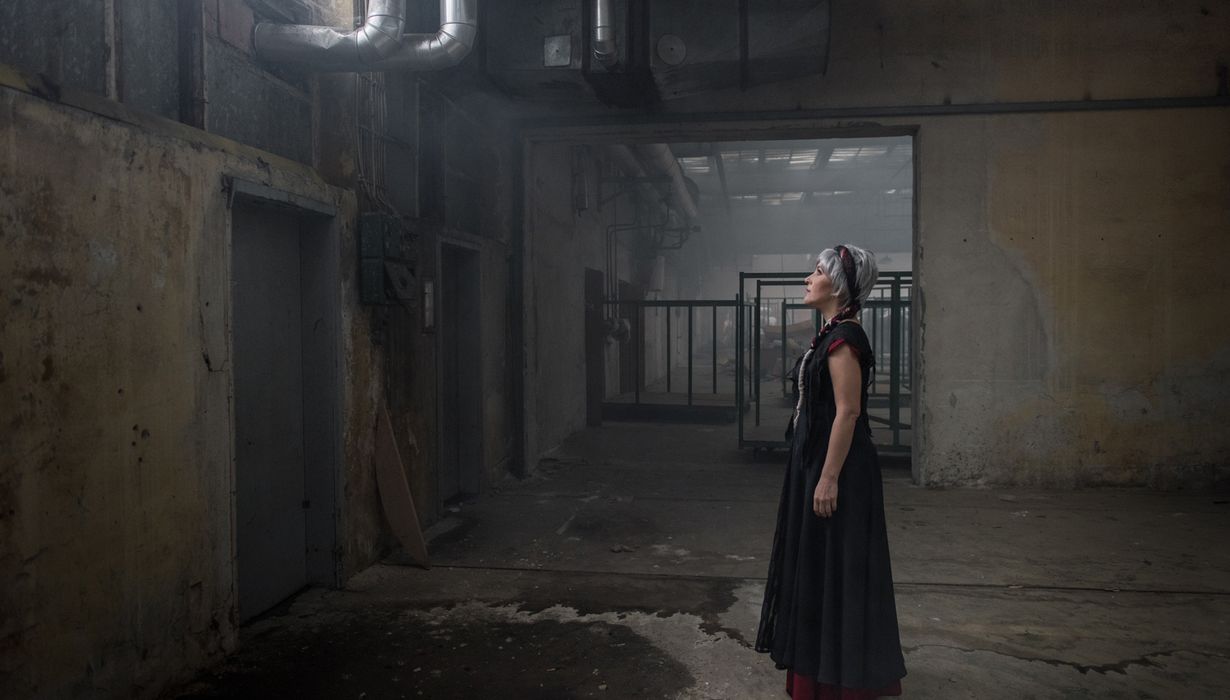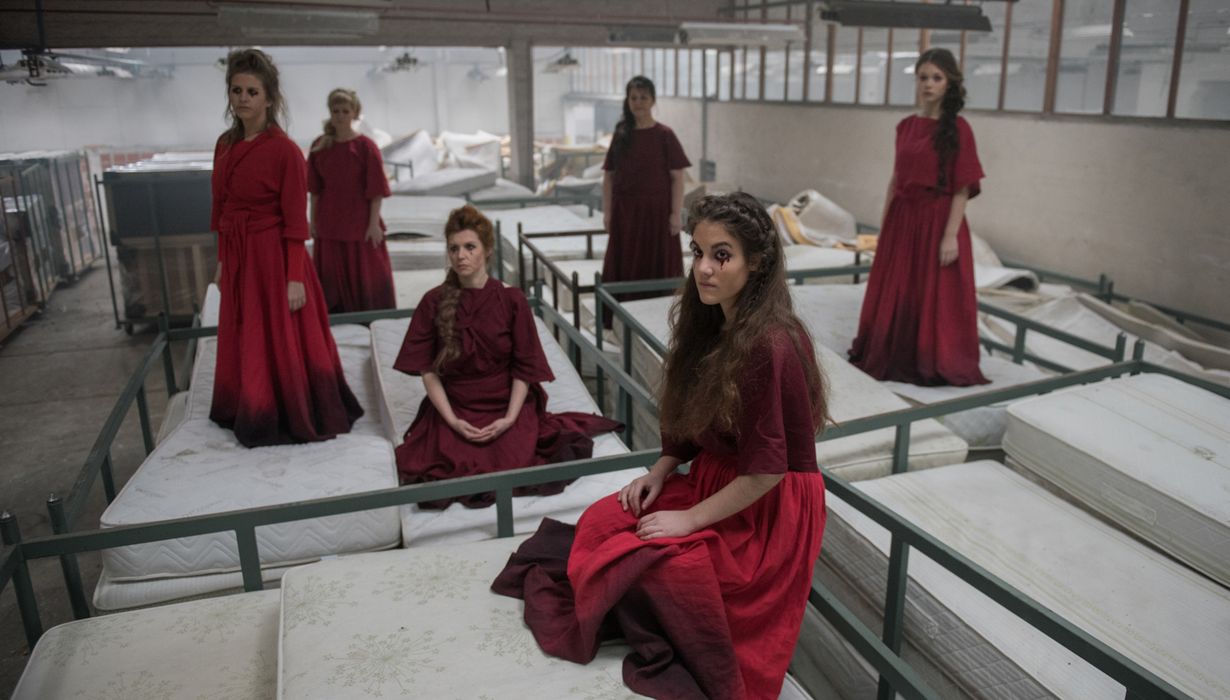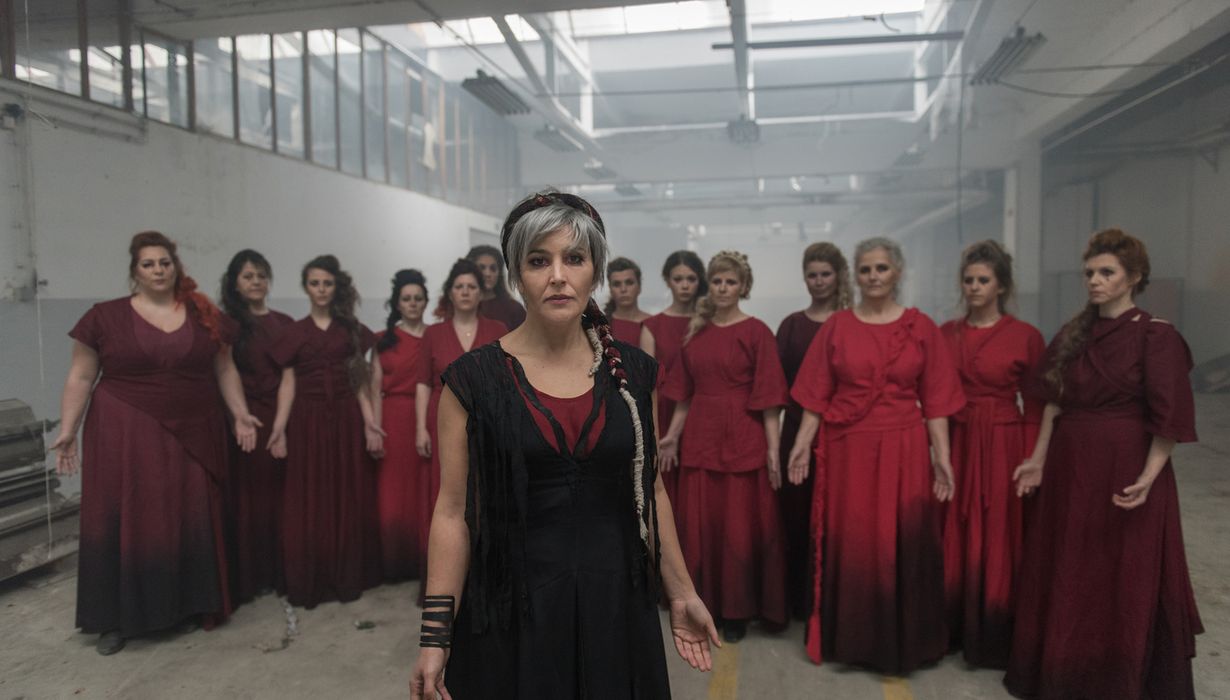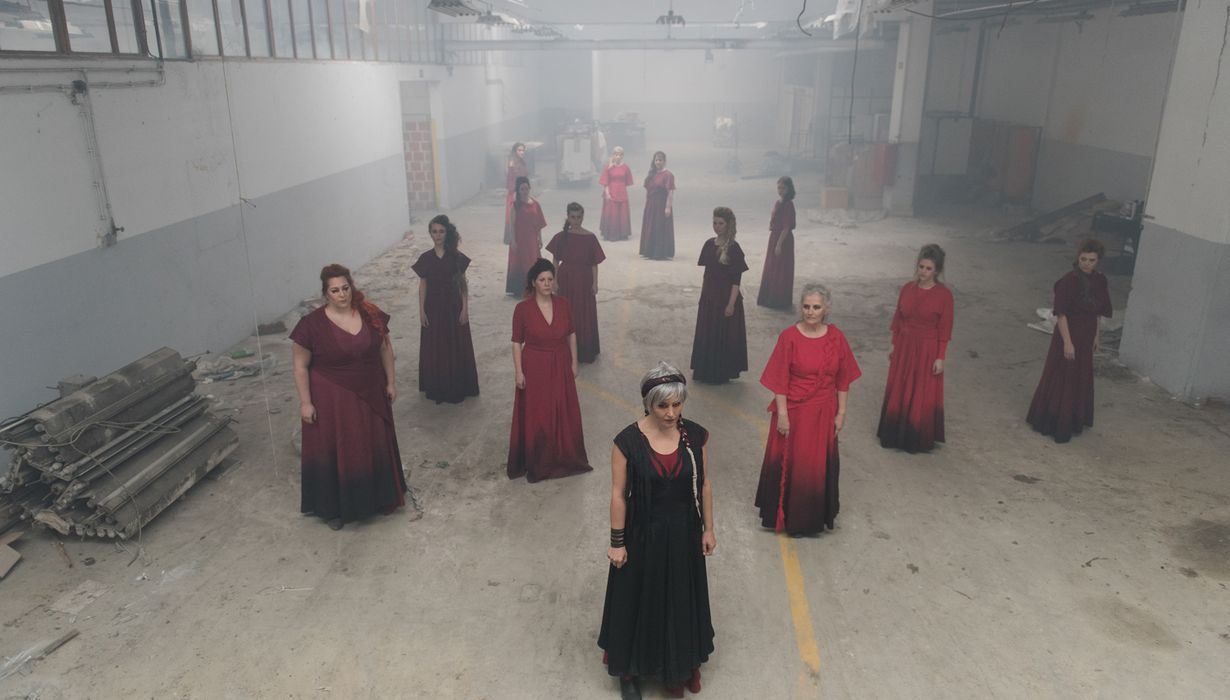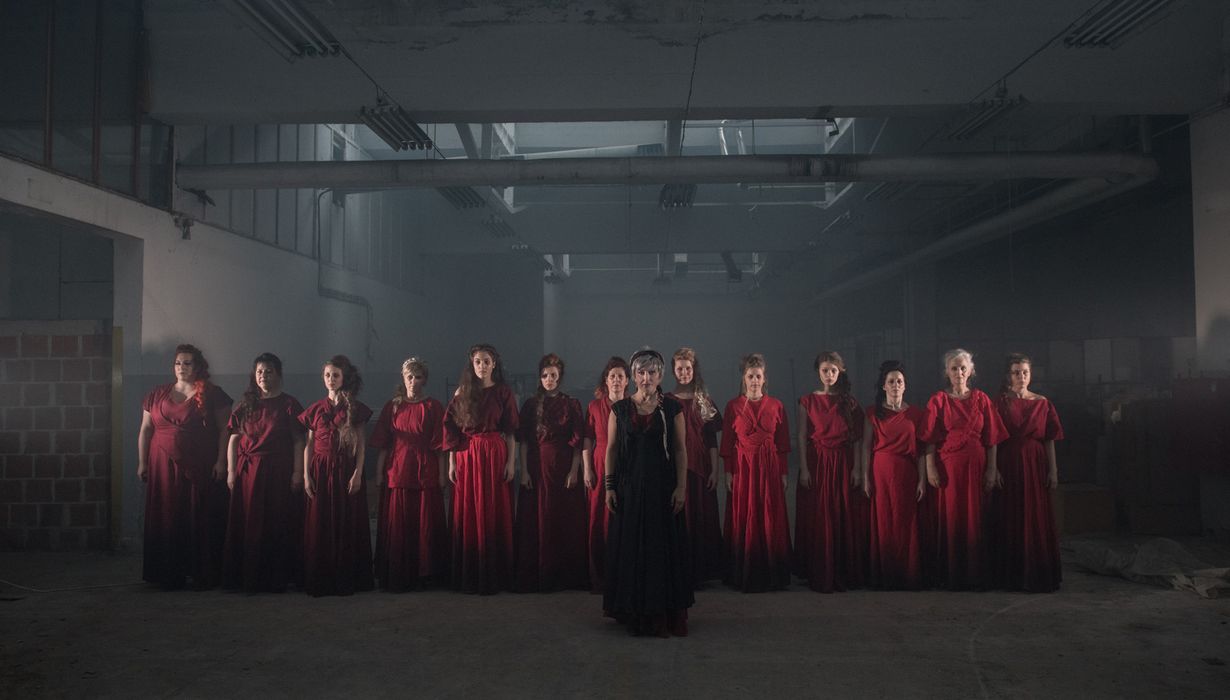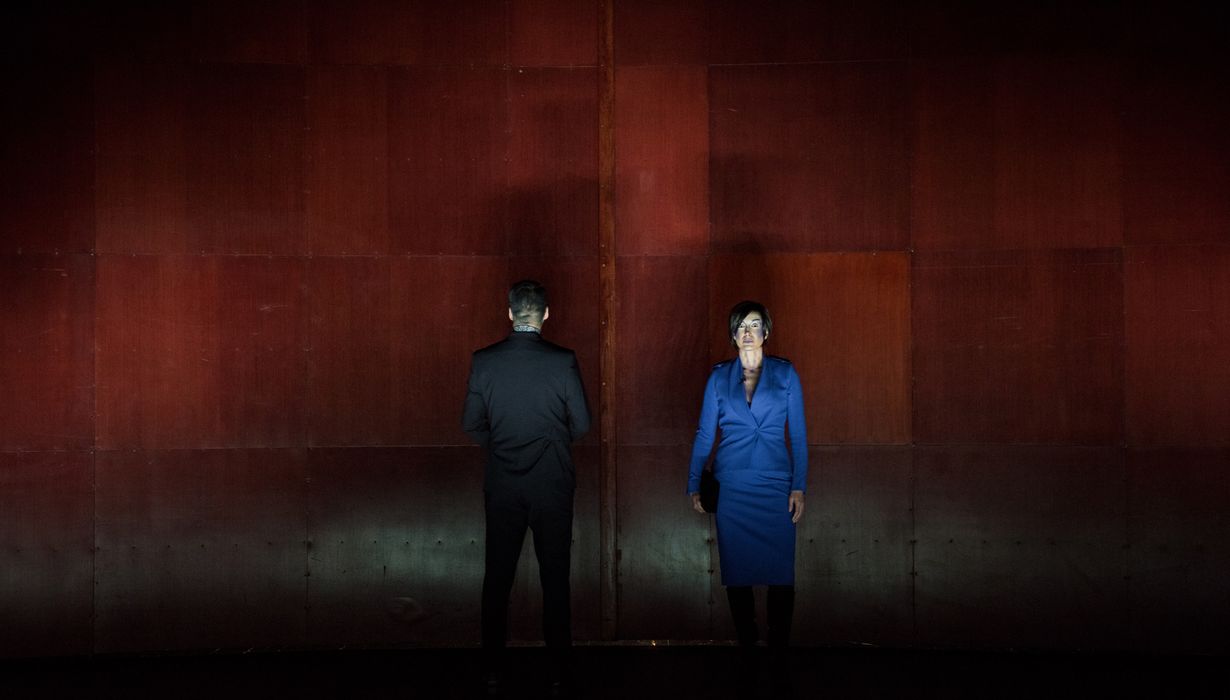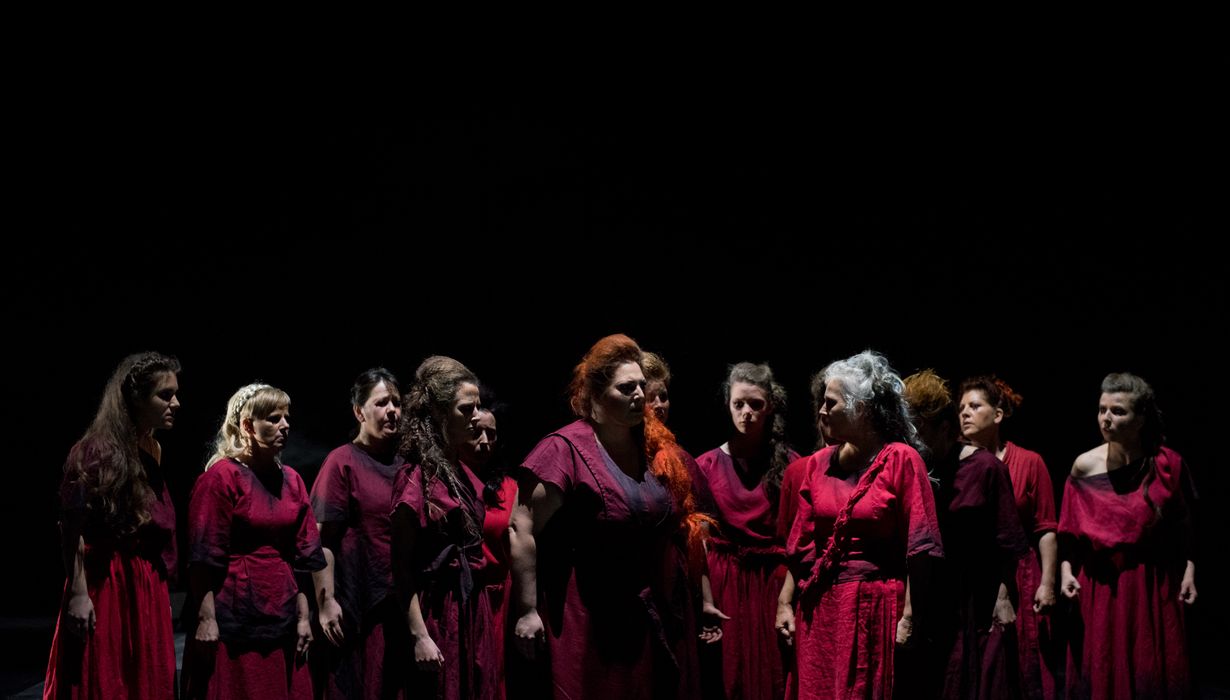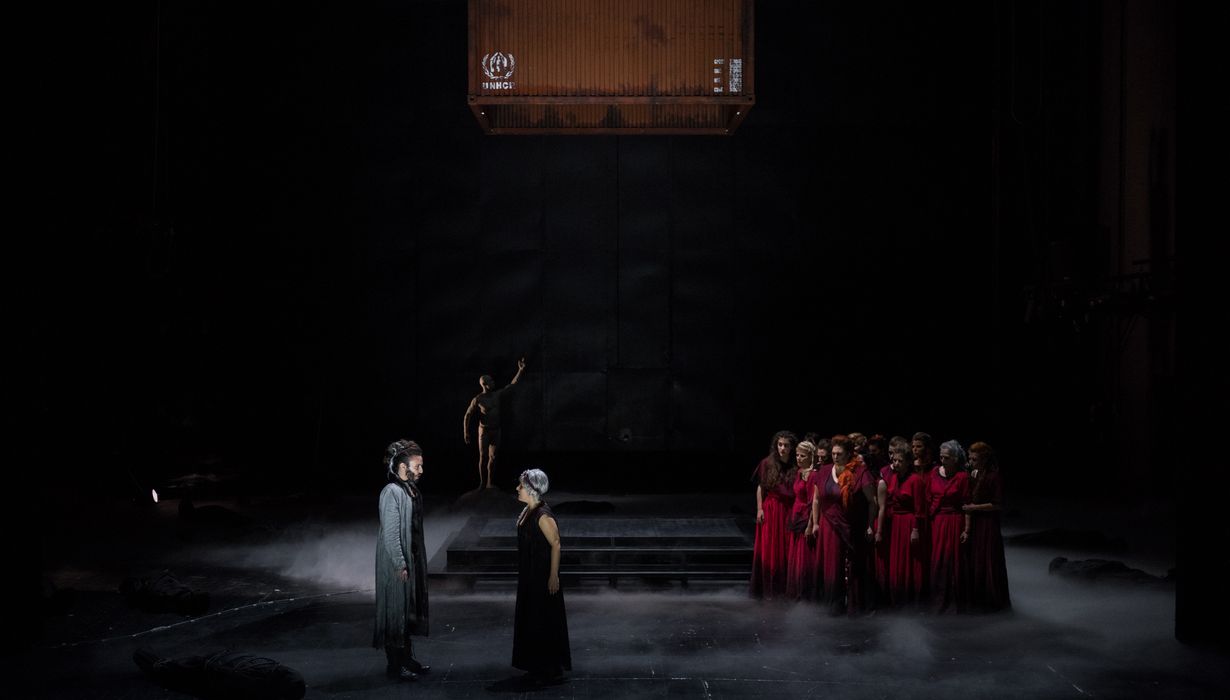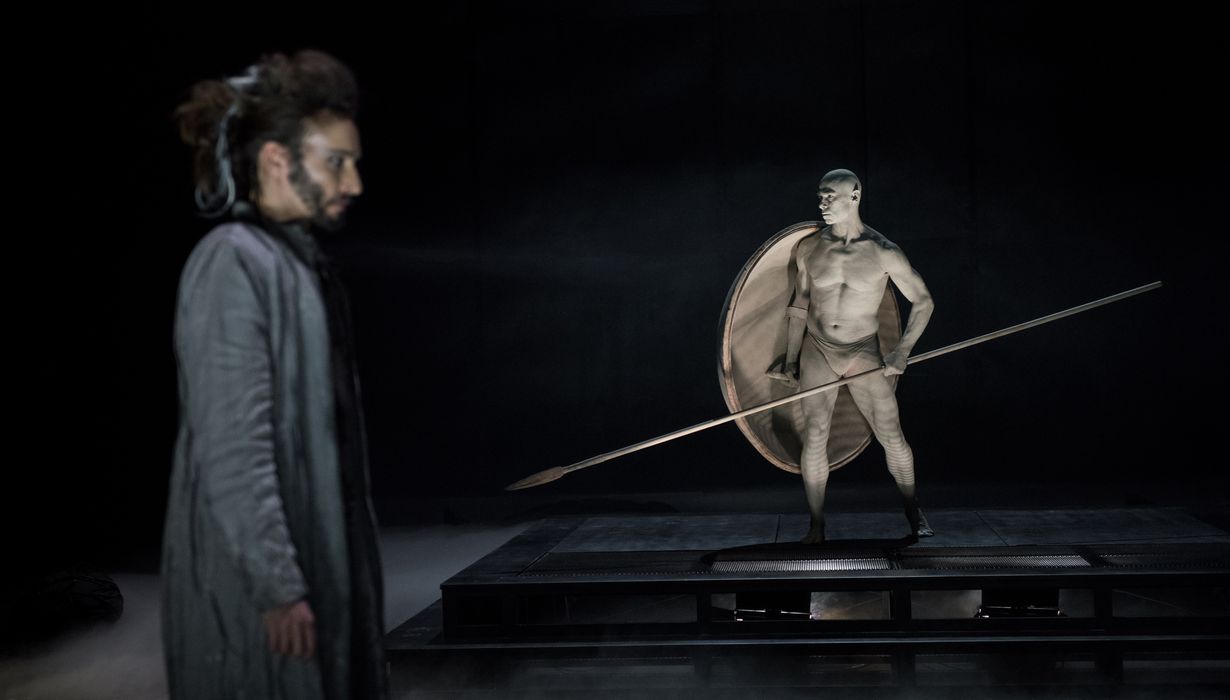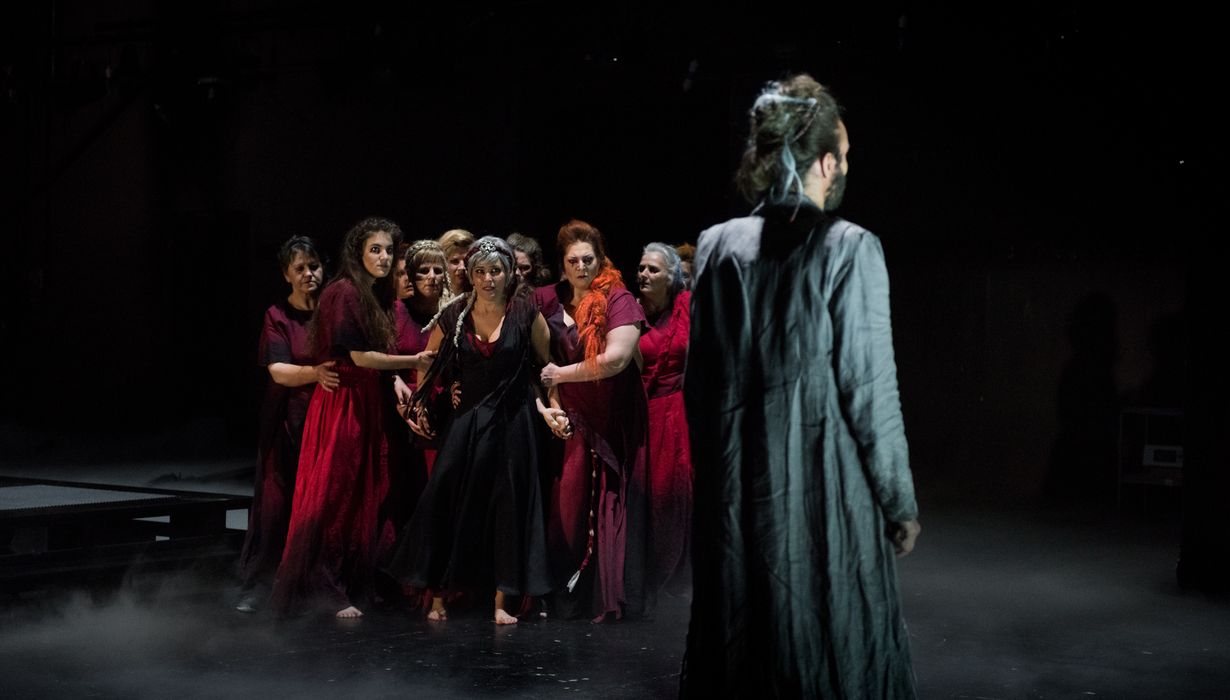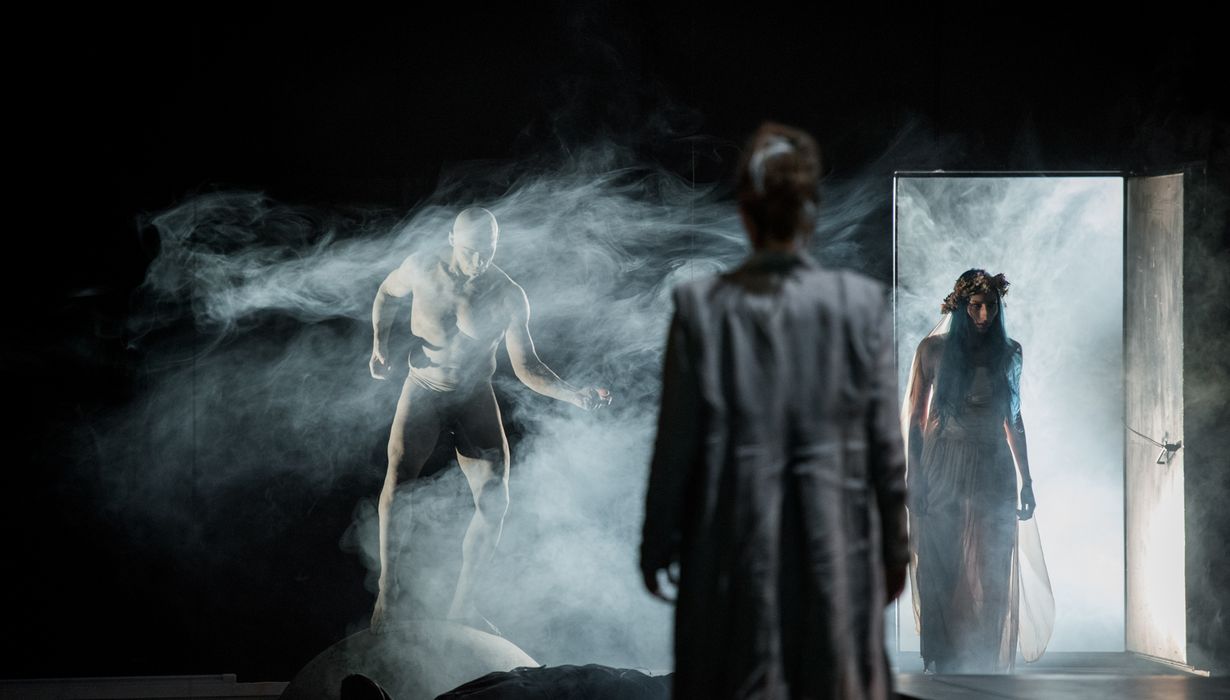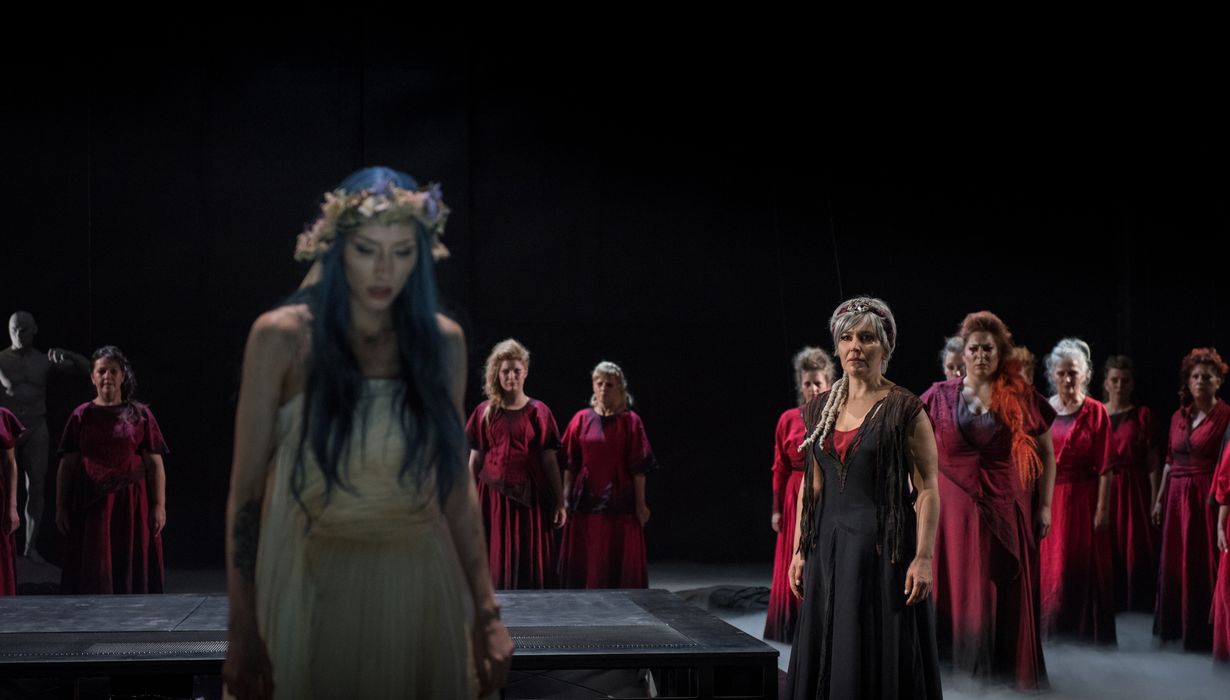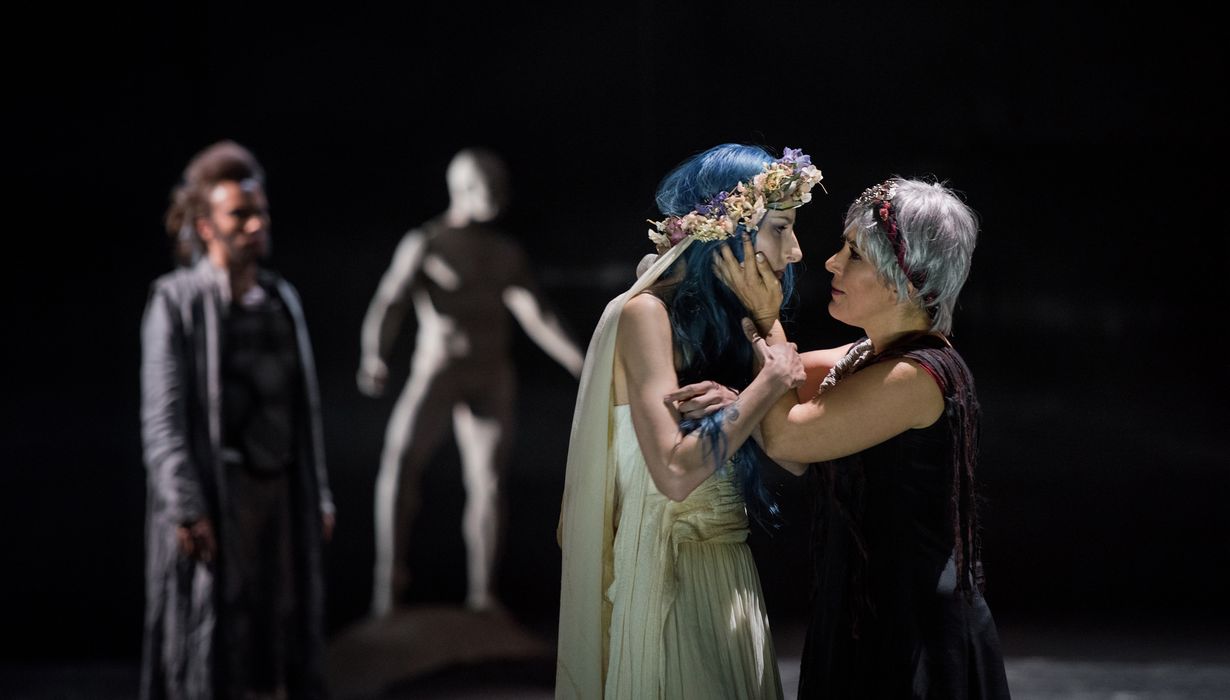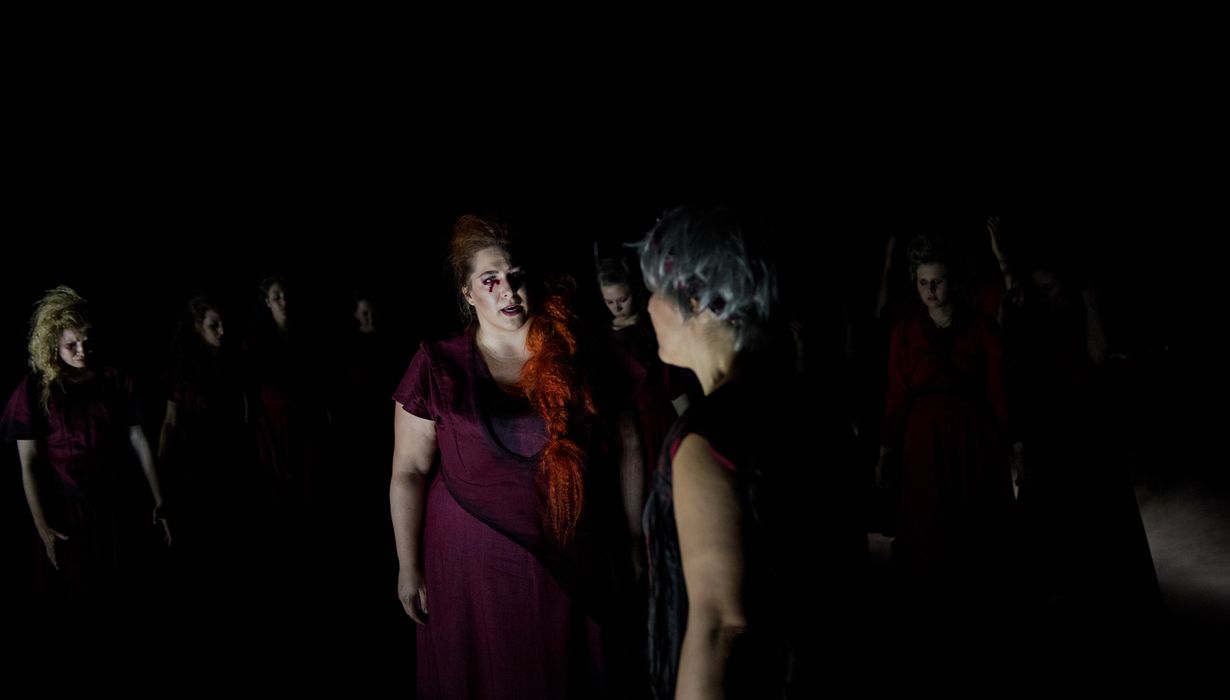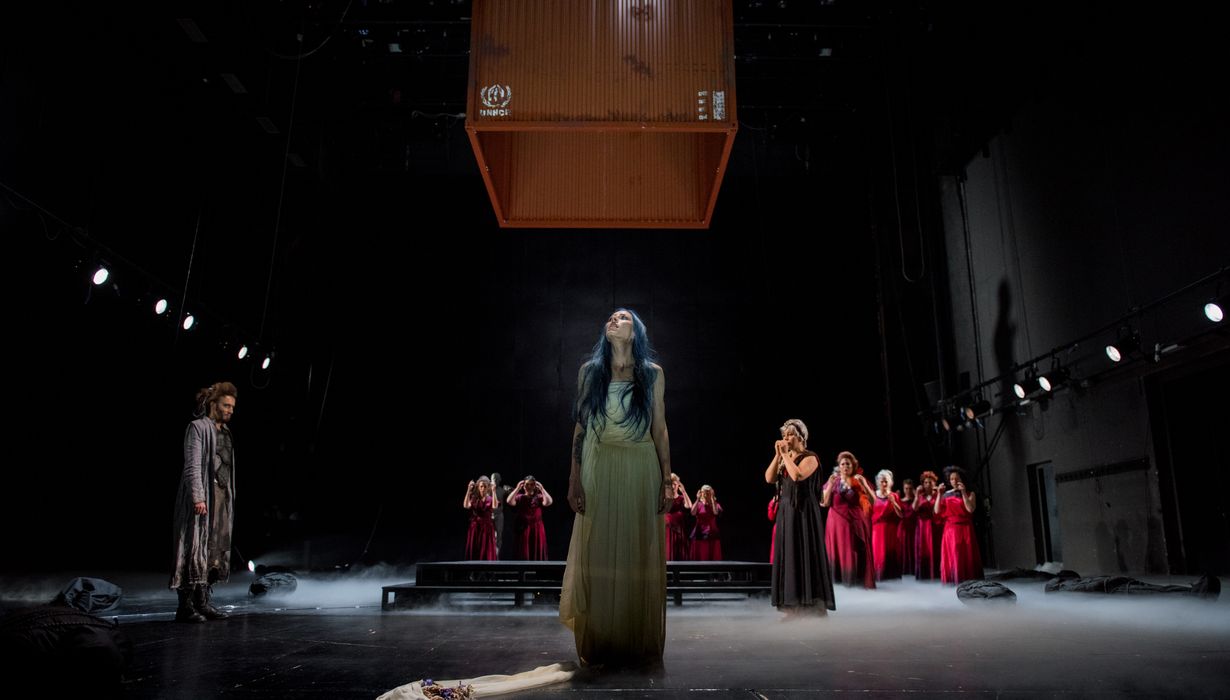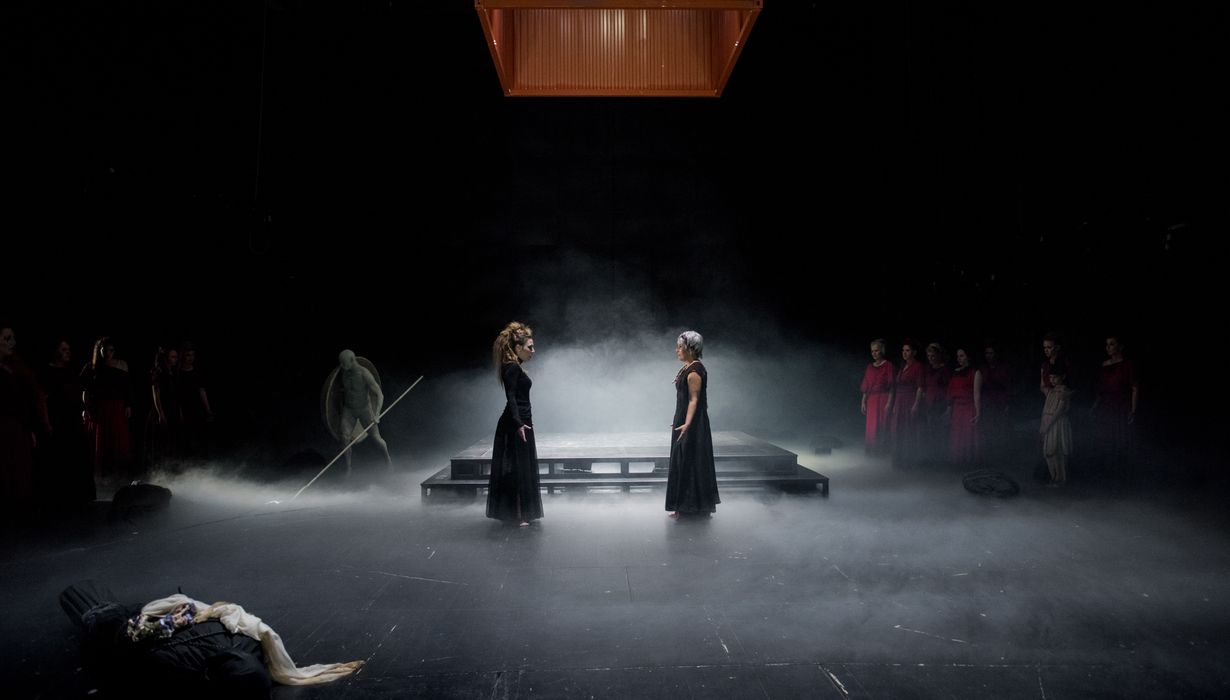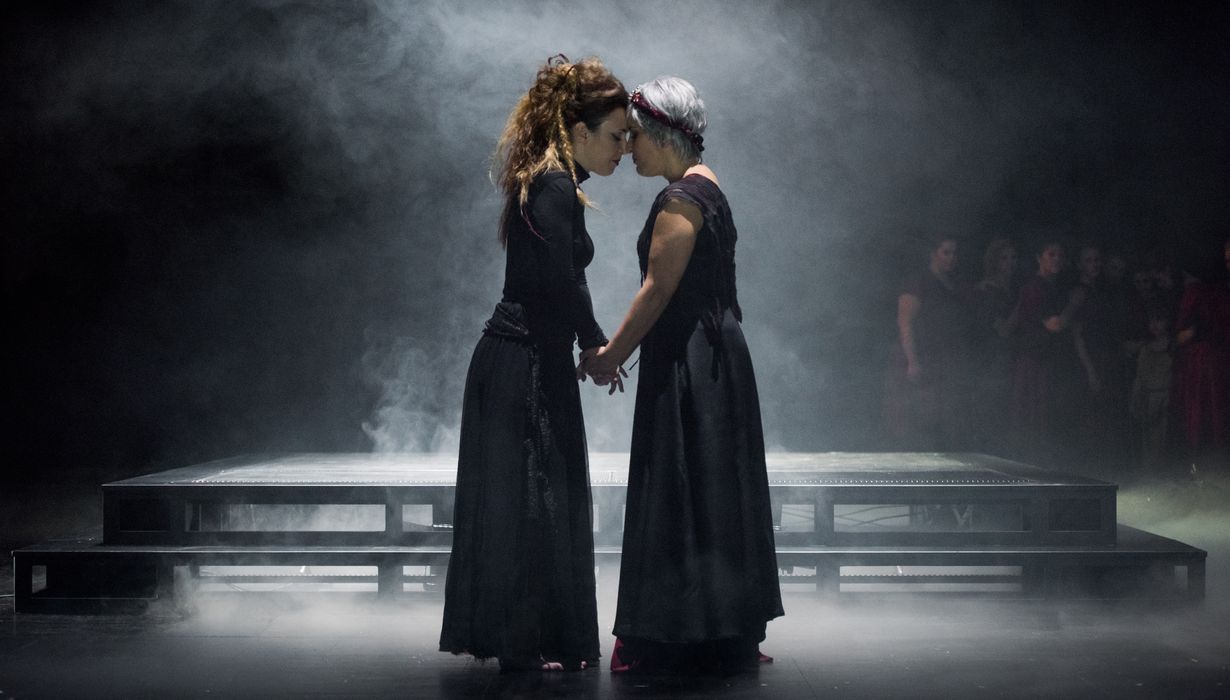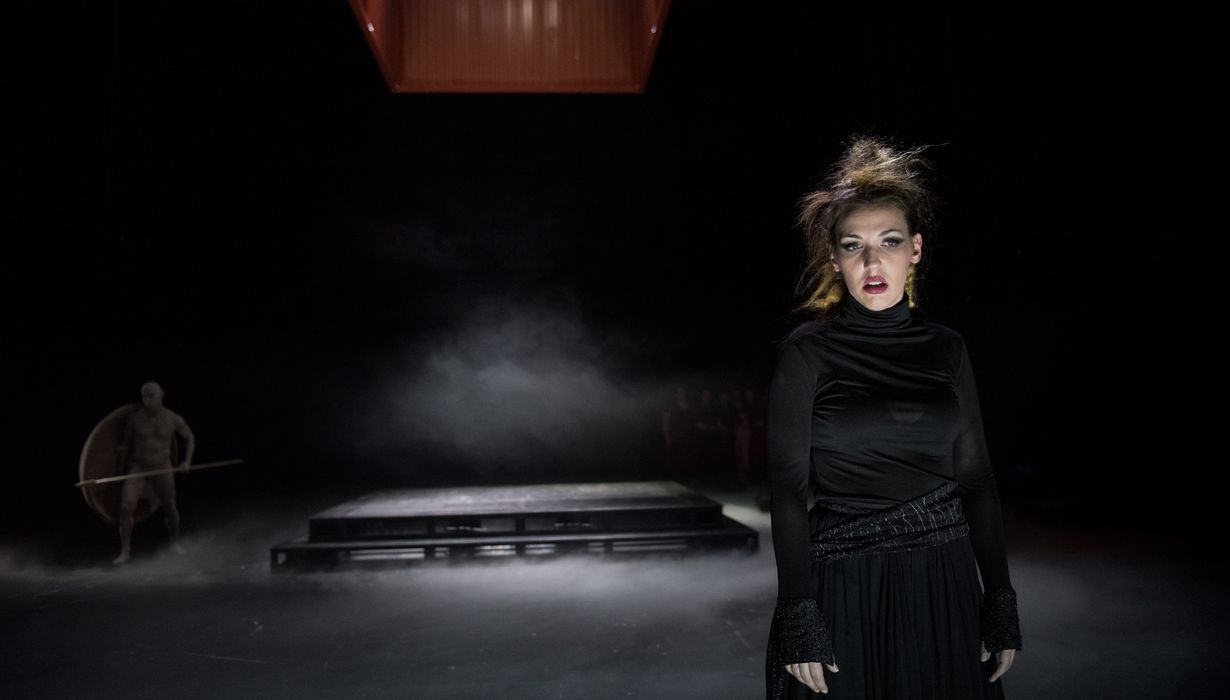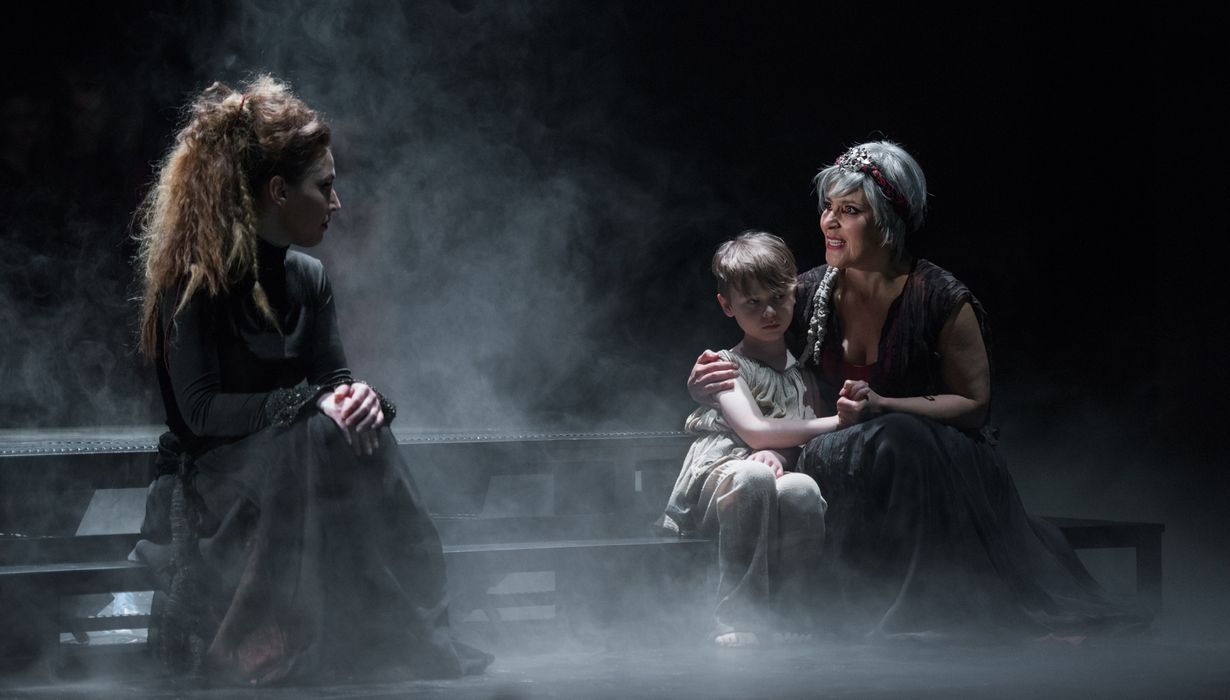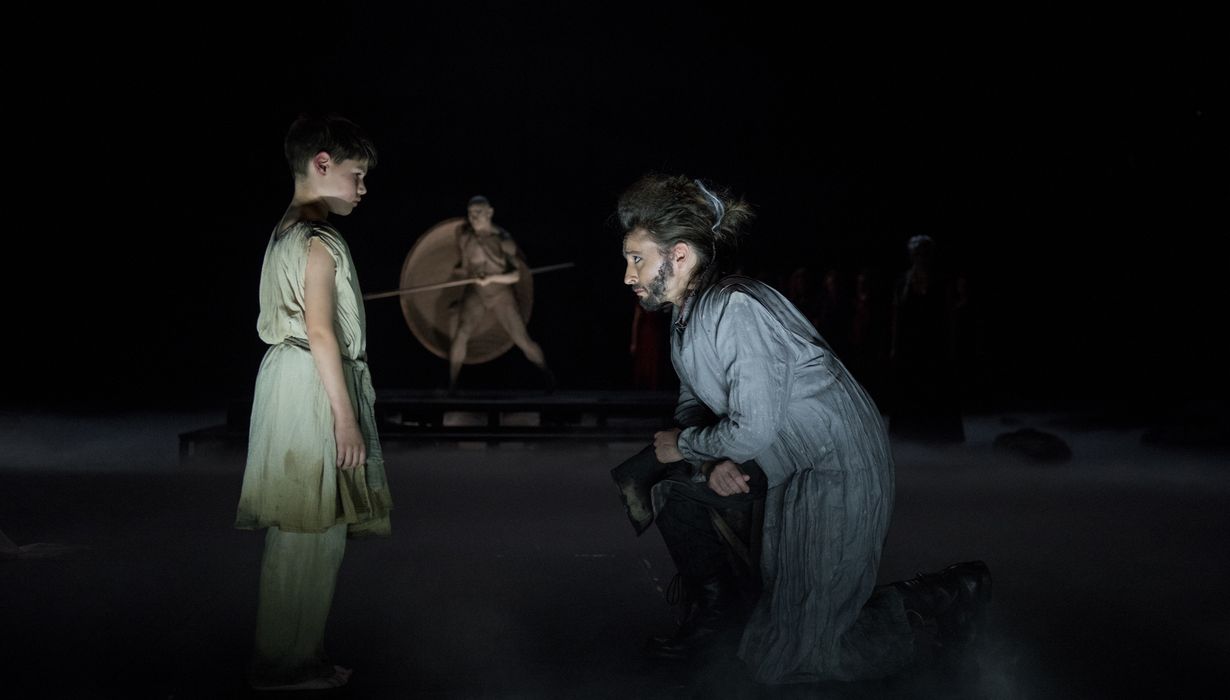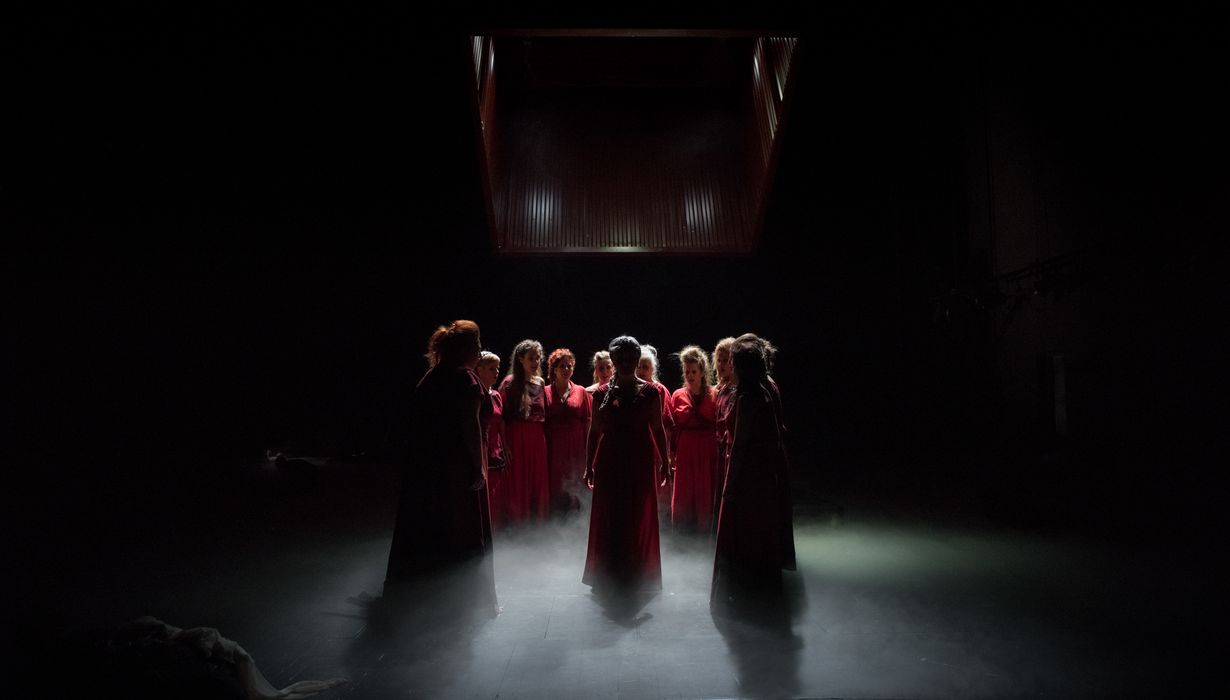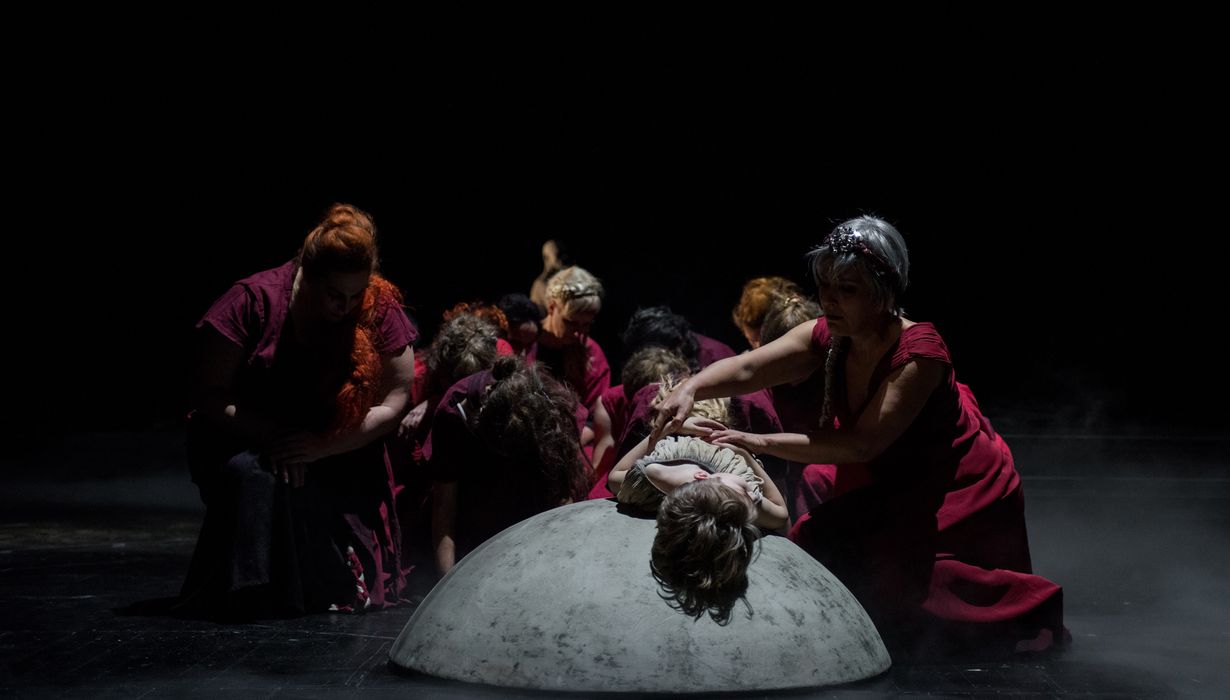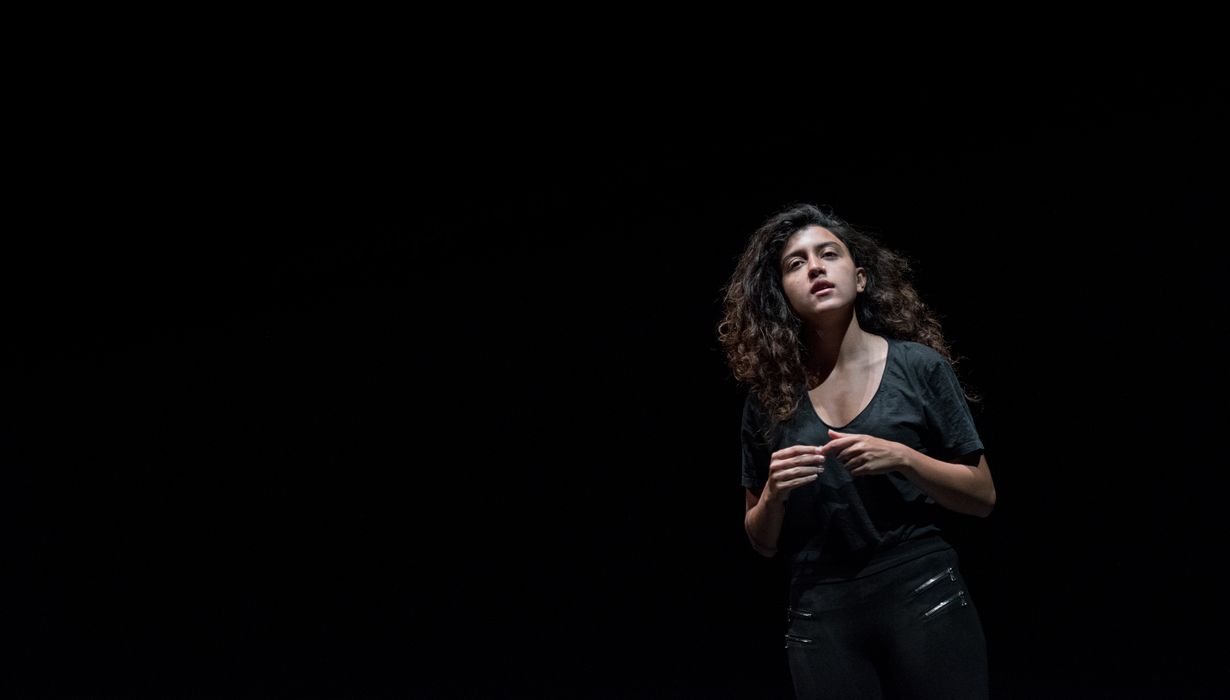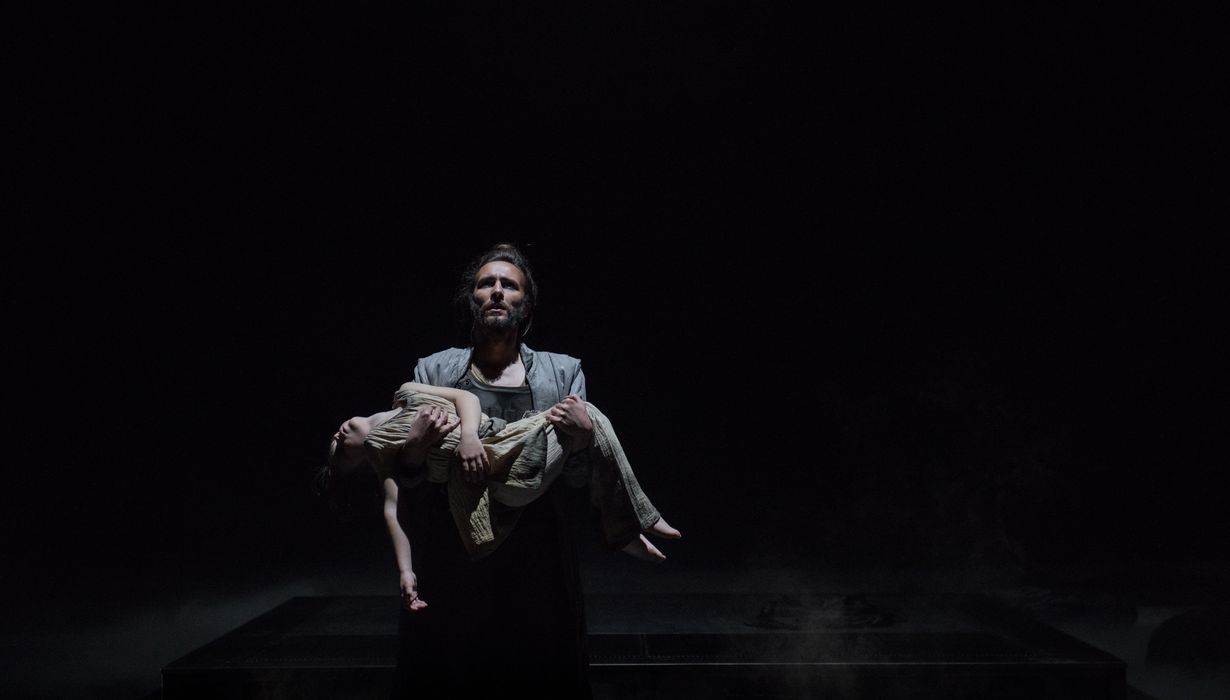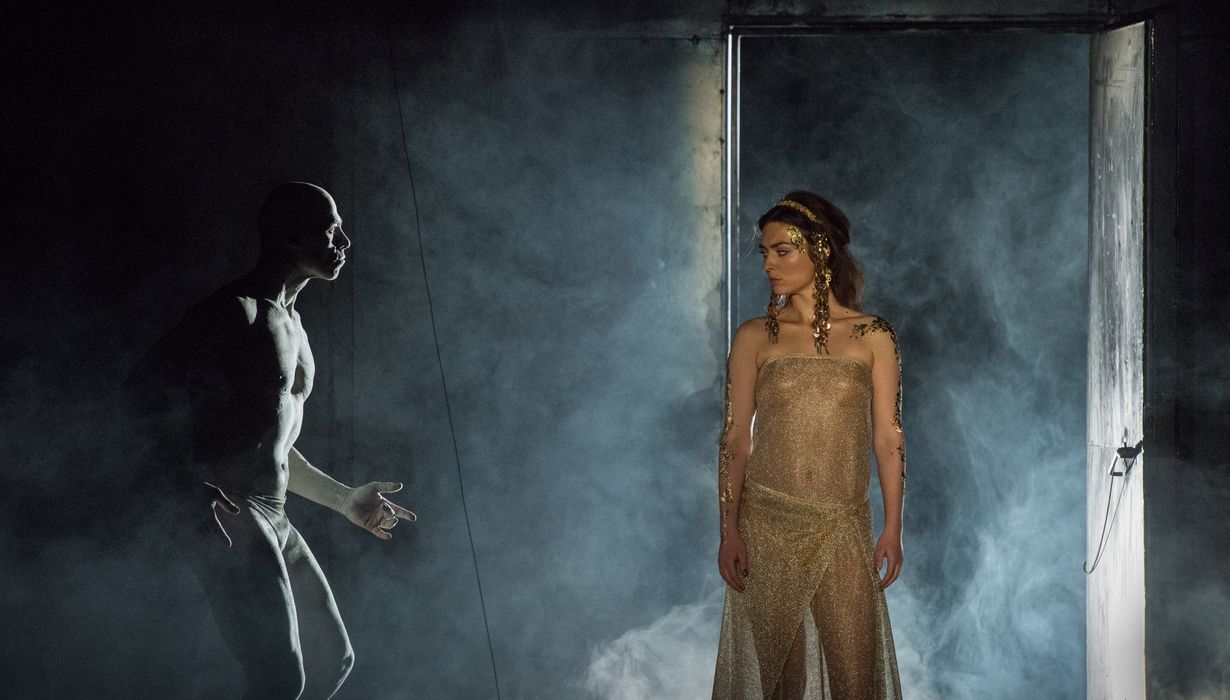PREMIERE
12. april 2018
SNG Nova Gorica
The Trojan War is over, all the Trojan heroes have fallen; in front of the burning rubble of the once famous city the Trojan women and their children are waiting to go into Greek slavery. The women, lead by the aged queen Hecuba, decry their sad fate and that of their city. The Queen’s daughter Cassandra is destined to become a concubine to Agamemnon, the king of Mycenae, her daughter in law, Andromache, a wife to Achilles’s son, while her daughter Polyxena will be sacrificed on Achilles’s grave, and the queen herself will be a slave to Odysseus. Even Andromache’s son, their last hope for the revival of the city, has been destined to die by the merciless winners. The Trojan women blame the beautiful Helen for all the evil that has befallen them; she was the one whom Prince Paris had effortlessly taken from the Spartan King Menelaus, the perpetrator of this war. The women’s confrontation is merciless, but it cannot ease the tragedy of the post-war suffering. While the burning city is turning into rubble, the Trojan women are being forced to leave their native land and enter slavery.
Euripides’s tragedy from 415 BC is set into the mythological era of the Trojan war, but is most likely the playwright’s commentary to the then pertinent Peloponnesus war in which Athens was fighting Sparta; perhaps even to the Athenian march to the neutral island of Melos and the slaughter or enslavement of its population. Euripides’s ideas were revolutionary and revolting to Athens then, so he often ended up second in drama competitions. In his works, he often spoke for the “humiliated and disrespected”, for slaves, women and, as in the Trojan women, for prisoners from a city hostile to Athens. The play is a condemnation of unjust wars, it questions the responsibility and guilt for them, so it is understandable that it has often been staged in the contexts of the then-current political circumstances. The most famous adaptation was the one by Jean Paul Sartre, which includes implicit criticism of European imperialism in Asia, and in 1971 Mihalis Kakogiannis made a film with Katherine Hepburn in the main role. The first Slovenian staging is director Jaša Koceli’s debut on the SNG Nova Gorica stage.
Creators
-
Translator
Jera Ivanc -
Director
Jaša Koceli -
Dramaturg
Ana Kržišnik Blažica -
Language Consultant
Srečko Fišer -
Set Designer
Darjan Mihajlović Cerar -
Costume Designer
Branka Pavlič -
Composer
Miha Petric -
Repetiteur
Marta Kosturska -
Choreographer
Tajda Podobnik -
Photographer
Mankica Kranjec -
Light Designer
Samo Oblokar -
Make-up Designer
Tina Prpar
Performing
Poseidon
Kristijan Guček / Romeo Grebenšek k. g.Athena
Helena PeršuhHecuba, Queen of Troy
Marjuta SlamičCassandra, A daughter of Hecuba
Raiven k. g.Andromache, A daughter-in-law of Hecuba
Patrizia Jurinčič Finžgar / Medea NovakHelen, Menelaus' wife and Hecuba's daughter-in-law after the late Paris
Arna HadžialjevićTalthybius, A Greek herald
Jure KopušarMenelaus, A Greek commander (Voice)
Miha NemecAstyanax
Isaak Hrovatin k. g. / Lev Lipušček k. g. / Januš Lipušček k. g.Warrior
Siniša Bukinac k. g.Leader of chorus of Trojan captives
Ana FacchiniChorus
Dušanka Ristić, Mojca Cej k. g., Vida Fabčič k. g., Hana Ferizović k. g., Kati Harej k. g., Petra Kolenc k. g., Ajda Podgornik Valič k. g., Helena Simčič k. g., Barbara Simčič Veličkov k. g., Anja Trobec k. g., Lucija Zorn k. g., Ana Žnidarčič k. g.Poet
Farah Chamma k. g.
THEATER LIST
In the Media
Awards
- Marjuta Slamič - tantadruj za igralsko stvaritev 2017/2018, med drugim tudi za vlogo Hekabe
- Mankica Kranjec - tri prve nagrade na mednarodnem gledališkem fotografskem natečaju Theatre Exposed v kategorijah portret, umetnost in v prosti kategoriji za fotografije predstave Trojanke
Festivals and performances abroad
- International Festival of Ancient Greek Drama, Cyprus, 2019
12. 4. 2018 at 20.00 SNG Nova Gorica.
13. 4. 2018 at 20.00 SNG Nova Gorica.
18. 4. 2018 at 20.00 SNG Nova Gorica.
19. 4. 2018 at 20.00 SNG Nova Gorica.
4. 5. 2018 at 20.00 SNG Nova Gorica.
5. 5. 2018 at 20.00 SNG Nova Gorica.
13. 6. 2018 at 20.00 SNG Nova Gorica.
17. 10. 2018 at 20.00 SNG Nova Gorica.
18. 10. 2018 at 11.00 SNG Nova Gorica.
6. 11. 2018 at 19.30 Delavski dom Trbovlje.
9. 11. 2018 at 11.00 SNG Nova Gorica.
9. 11. 2018 at 20.00 SNG Nova Gorica.
13. 11. 2018 at 19.00 Kulturni center Lendava.
26. 5. 2019 at 21.00 SNG Nova Gorica.
14. 6. 2019 at 20.00 Drama SNG Maribor.
28. 6. 2019 at 21.00 International Festival of Ancient Greek Drama, Cyprus.
30. 6. 2019 at 21.00 International Festival of Ancient Greek Drama, Cyprus.
9. 10. 2019 at 11.00 SNG Nova Gorica.
9. 10. 2019 at 20.00 SNG Nova Gorica.
11. 10. 2019 at 19.00 HNK Osijek, Hrvatska.
11. 7. 2020 at 21.00 amfiteater gradu Kromberk. - CANCELLED
27. 8. 2020 at 20.30 amfiteater gradu Kromberk. V primeru slabega vremena v SNG Nova Gorica.
15. 4. 2021 at 20.00 splet.
24. 3. 2022 at 11.00 SNG Nova Gorica.
25. 3. 2022 at 11.00 SNG Nova Gorica. - CANCELLED
25. 3. 2022 at 20.00 SNG Nova Gorica. - CANCELLED
4. 5. 2022 at 11.00 SNG Nova Gorica.
10. 5. 2022 at 11.00 SNG Nova Gorica.
12. 1. 2023 at 11.00 SNG Nova Gorica.
13. 1. 2023 at 20.00 Slovensko stalno gledališče Trst.
14. 1. 2023 at 20.00 Slovensko stalno gledališče Trst.
15. 1. 2023 at 16.00 Slovensko stalno gledališče Trst.
SPONSORS





